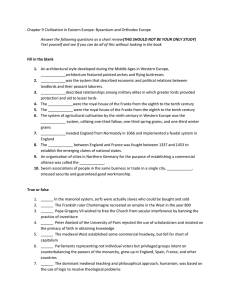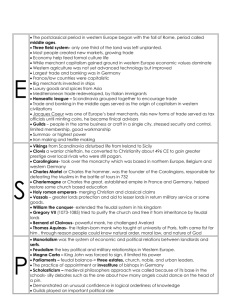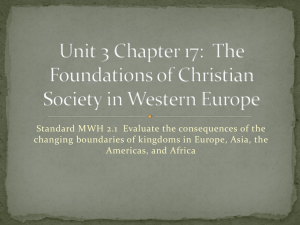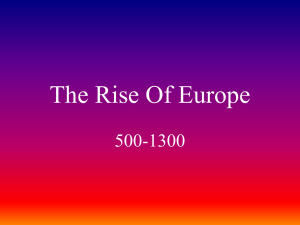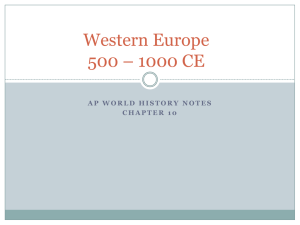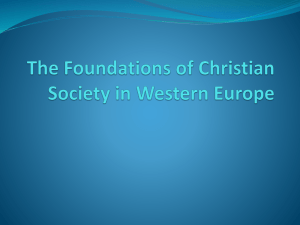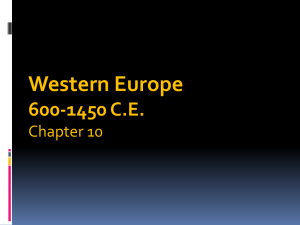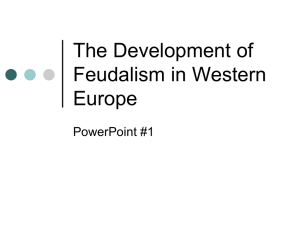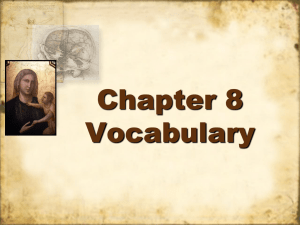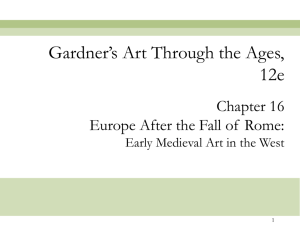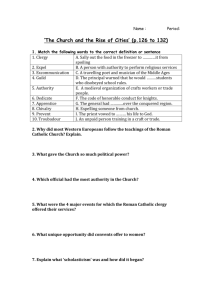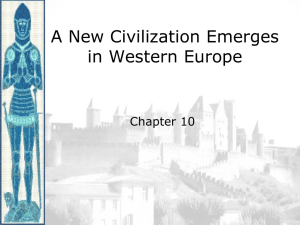Chapter 17 Guide
advertisement
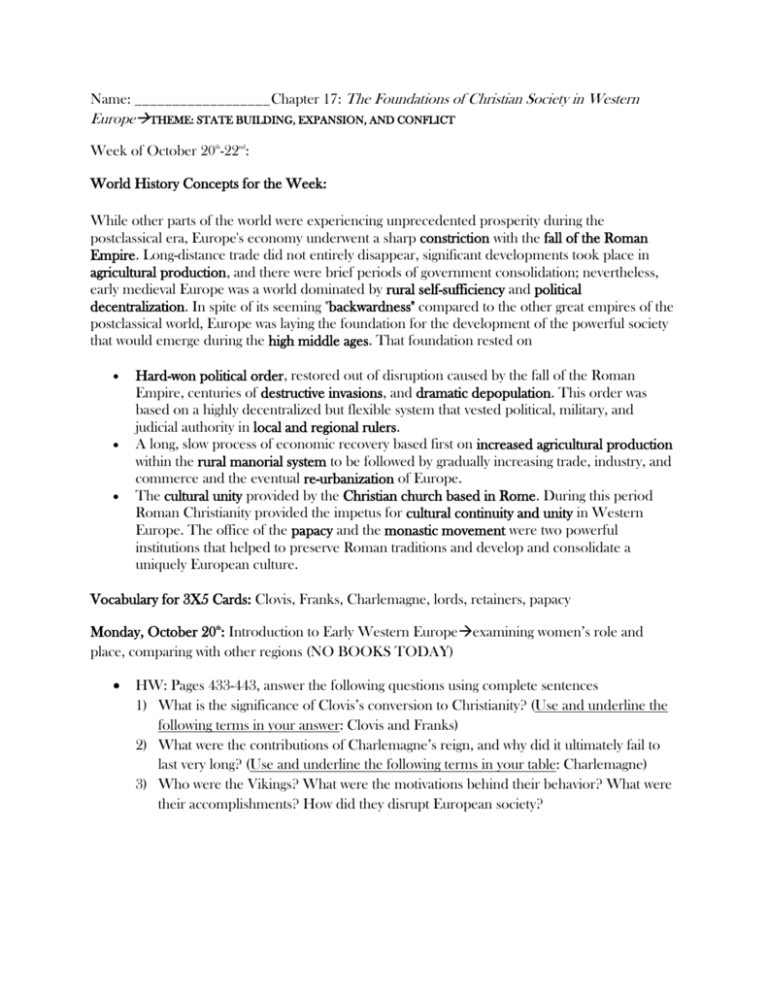
Name: __________________ Chapter 17: The Foundations of Christian Society in Western EuropeTHEME: STATE BUILDING, EXPANSION, AND CONFLICT Week of October 20th-22nd: World History Concepts for the Week: While other parts of the world were experiencing unprecedented prosperity during the postclassical era, Europe's economy underwent a sharp constriction with the fall of the Roman Empire. Long-distance trade did not entirely disappear, significant developments took place in agricultural production, and there were brief periods of government consolidation; nevertheless, early medieval Europe was a world dominated by rural self-sufficiency and political decentralization. In spite of its seeming "backwardness" compared to the other great empires of the postclassical world, Europe was laying the foundation for the development of the powerful society that would emerge during the high middle ages. That foundation rested on Hard-won political order, restored out of disruption caused by the fall of the Roman Empire, centuries of destructive invasions, and dramatic depopulation. This order was based on a highly decentralized but flexible system that vested political, military, and judicial authority in local and regional rulers. A long, slow process of economic recovery based first on increased agricultural production within the rural manorial system to be followed by gradually increasing trade, industry, and commerce and the eventual re-urbanization of Europe. The cultural unity provided by the Christian church based in Rome. During this period Roman Christianity provided the impetus for cultural continuity and unity in Western Europe. The office of the papacy and the monastic movement were two powerful institutions that helped to preserve Roman traditions and develop and consolidate a uniquely European culture. Vocabulary for 3X5 Cards: Clovis, Franks, Charlemagne, lords, retainers, papacy Monday, October 20th: Introduction to Early Western Europeexamining women’s role and place, comparing with other regions (NO BOOKS TODAY) HW: Pages 433-443, answer the following questions using complete sentences 1) What is the significance of Clovis’s conversion to Christianity? (Use and underline the following terms in your answer: Clovis and Franks) 2) What were the contributions of Charlemagne’s reign, and why did it ultimately fail to last very long? (Use and underline the following terms in your table: Charlemagne) 3) Who were the Vikings? What were the motivations behind their behavior? What were their accomplishments? How did they disrupt European society? Tuesday, October 21st : Examining the Feudal Relationship, textbook pg. 448 (BRING BOOKS!) HW: Pages 443-449: 4) What were the obligations of the lords toward their retainers and the retainers toward their lords? Why was this arrangement often unstable? (Use and underline the following terms in your table: lords, retainers) 5) What role did the serfs play in early medieval Europe? What was life like on the manor? (you can use what we did in class to serve as your answer to this one) 6) What was the significance of the invention of the heavy plow for European economy? ( 7) Although trade constricted in the early Middle Ages, where and how was it still going on? Wednesday, October 22nd : Looking at the investiture controversy (BRING BOOKS!) (TIMELINES DUE TODAY) HW: Pages 449-454 (in class) 8) What was the role of the pope in the early middle ages? How did his role evolve over this period of time? (Use and underline the following terms in your table: papacy) 9) How did monasticism develop in early medieval Europe? 10) What was the significance of the monasteries to the European society and economy? Looking forward to seeing all of you and yours at Parent/Teacher/Conferences! Wednesday: 4:30-7:45 Thursday: 12:00-3:30 and 5:00-8:00 Friday: By appointment Over the time we don’t meet here are some things to be working on: Finishing your outlines Reviewing your study cards
